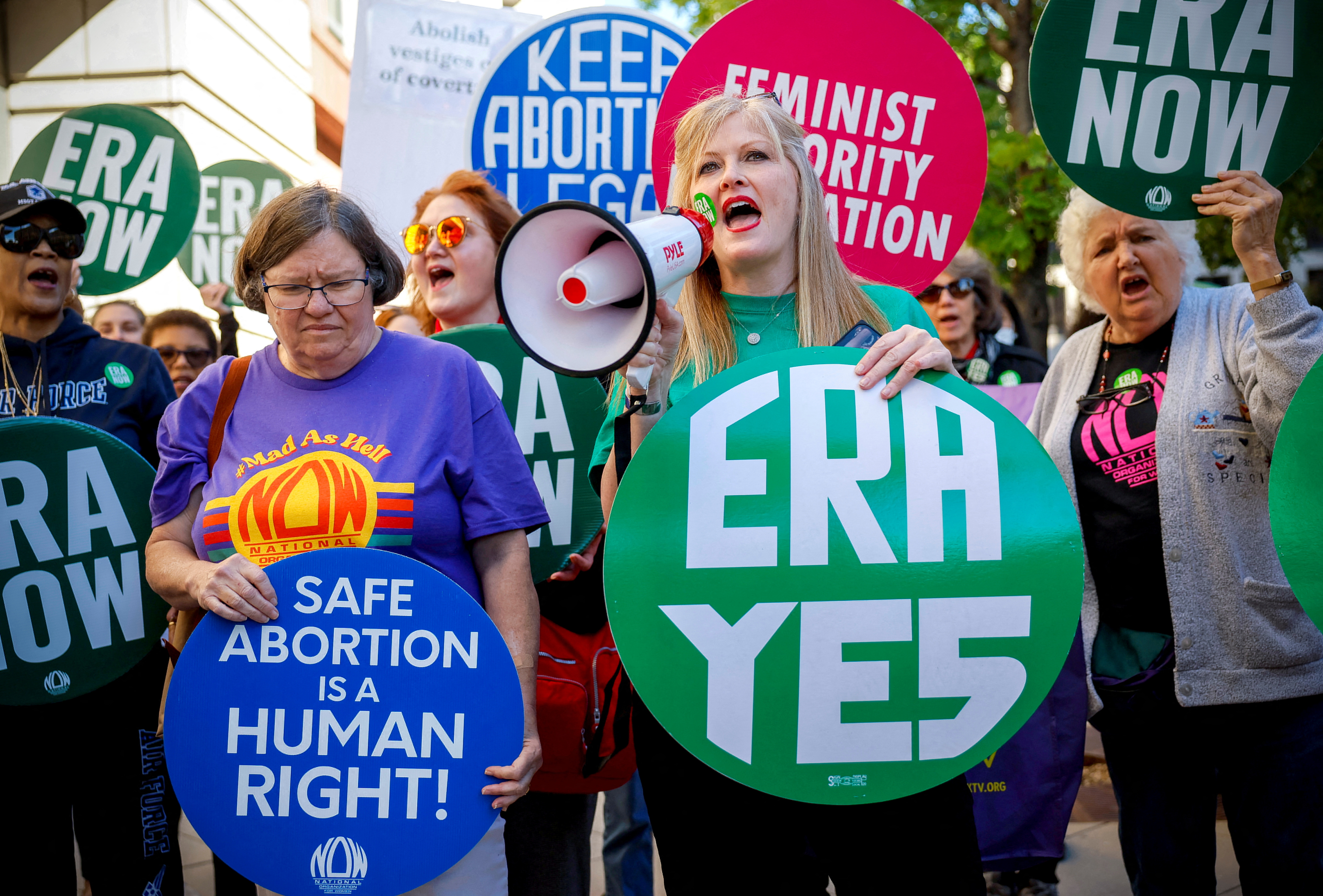The U.S. Senate on Thursday fell short of the votes needed to enshrine equal rights for women in the Constitution, a century after a guarantee of gender equality was proposed in Congress.
With a 51-47 vote in favor, Senate Democrats and supporters were nine votes shy of the 60 needed for a resolution to clear the 100-member chamber’s filibuster hurdle.
The resolution would have removed a 1982 deadline for state ratification that prevented the Equal Rights Amendment from going into effect. Three states — Nevada, Illinois and Virginia — approved it after 1982.
Top Senate Democrat Chuck Schumer said the ERA was more important since the Supreme Court last year overturned the national right to abortion.
“To the horror of hundreds of millions of American people, women in America have far fewer rights today than they did even a year ago,” Schumer said prior to Thursday’s vote.
Groups opposed to abortion have argued the ERA could provide an avenue to making abortion a constitutional right, and the amendment’s failure is likely to increase attention on women’s rights in the 2024 White House campaign.
Passage of Thursday’s resolution would have required the support of nine Republicans in the Senate, where Democrats hold a narrow 51-49 majority. Only two Republican senators, Lisa Murkowski of Alaska and Susan Collins of Maine, joined Democrats in voting for the measure.
The ERA was proposed in 1923 but did not pass Congress until 1972. Under U.S. law, amendments to the Constitution must be ratified by three-fourths, or 38 of the 50, state legislatures and do not require presidential approval.
A U.S. District Court ruled in 2021 that ratifications after the deadline “came too late to count.” And a federal appeals court in February rejected calls from Illinois and Nevada for the ERA to be adopted.
The Trump administration argued that ERA ratification needed to start over. The Biden administration has not formally changed that position but voiced support for the resolution on Thursday.
“It is long past time to definitively enshrine the principle of gender equality in the Constitution,” the White House said.
Proponents of the amendment say it would ensure women get equal pay and secure their rights in legal matters, while opponents argue it could subject women to a military draft if it were reinstated.







Click here to change your cookie preferences